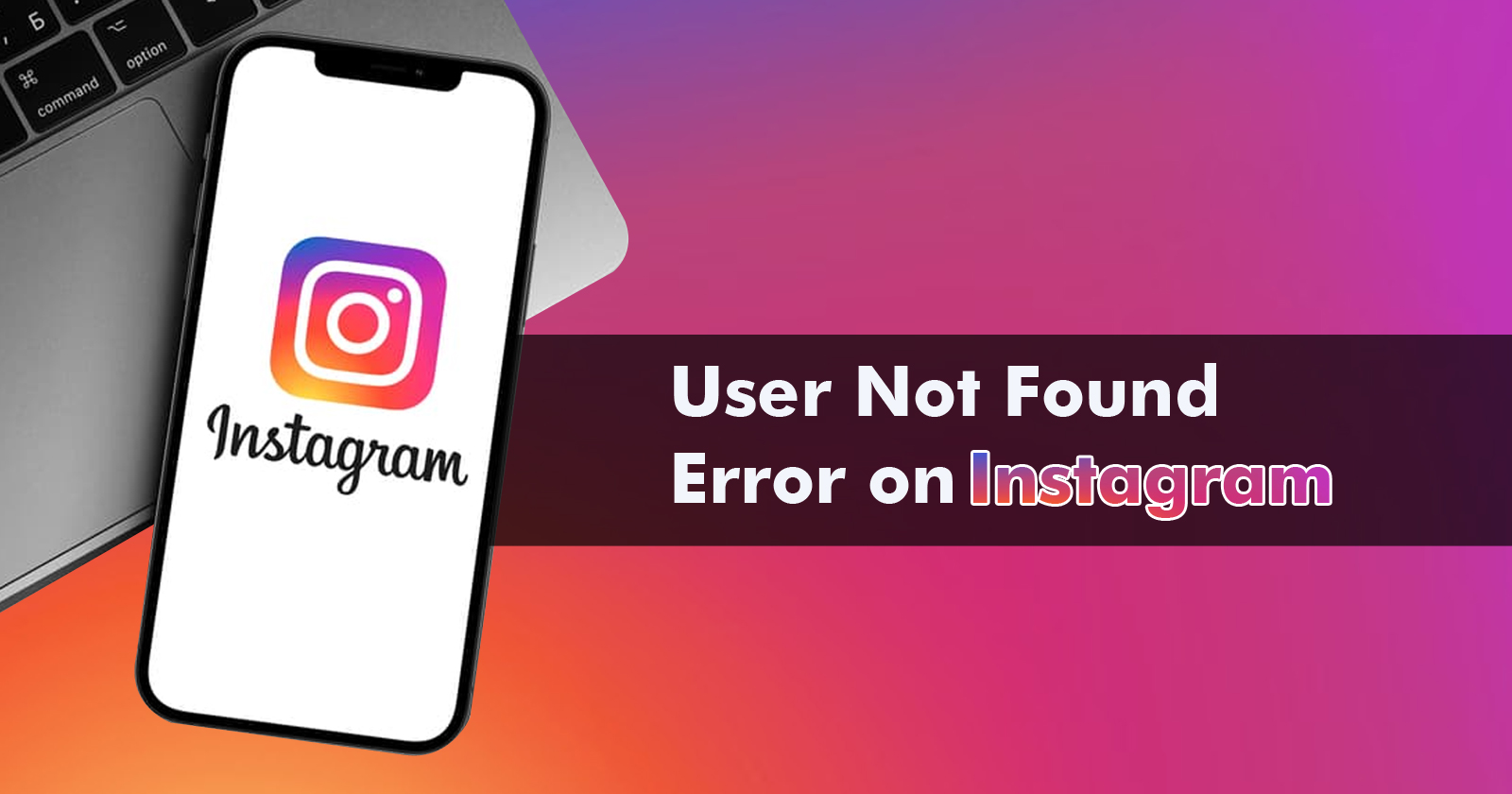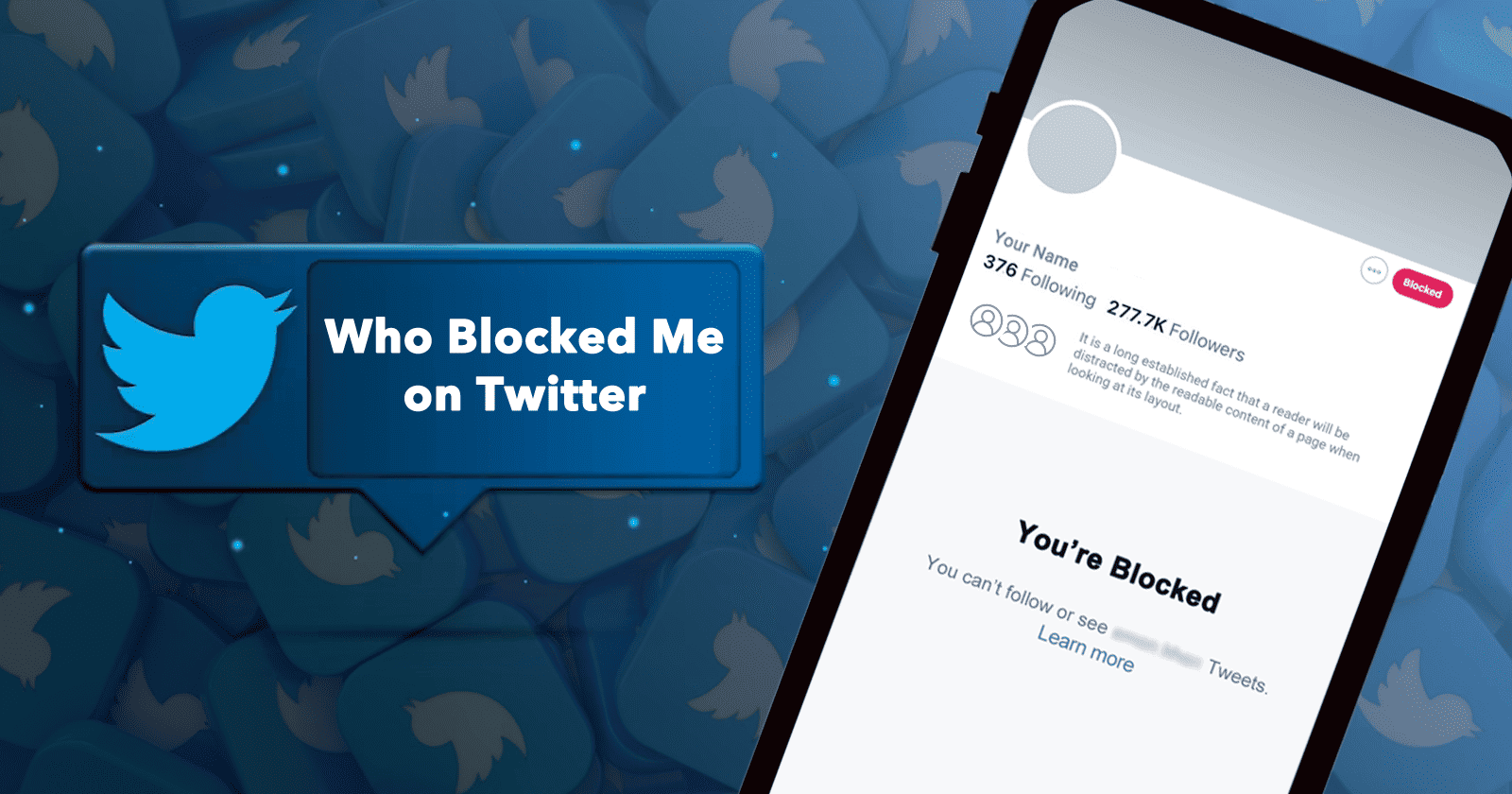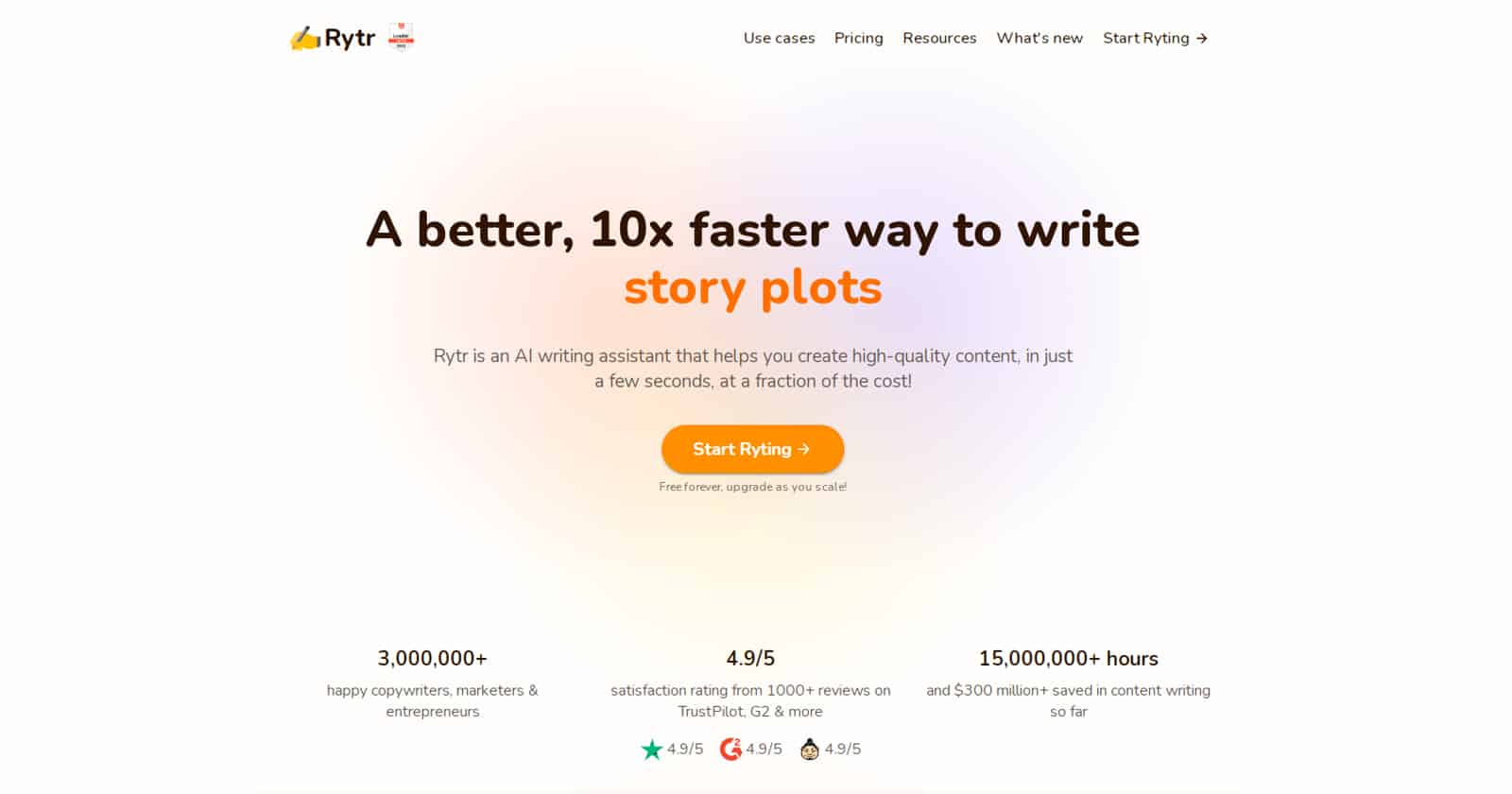How to Create a Blog for Free and Earn Money From Home in 2024?
Discover 8 free blogging platforms to create a blog for free. Learn how to start your blogging journey easily and without any cost in our comprehensive guide.

In the digital era, blogging has evolved from a hobby to a viable way of sharing insights and earning money. The possibility of starting a blog for free is particularly appealing, offering an accessible entry point for aspiring bloggers.
This guide will show you how to create a blog for free and monetize it. Whether you’re a seasoned writer or eager to turn your interests into income, we’ll walk you through crucial steps, including selecting the right platform, engaging readers, and generating revenue. Embark on this exciting journey where your passion for writing could lead to financial independence.
What Does a Blog Mean?
Contents
- 1 What Does a Blog Mean?
- 2 Advantages of Having a Blog
- 3 Who Can Create a Blog?
- 4 How Can You Create a Free Blog and Earn Money?
- 5 How Much Do I Need to Pay for a New Domain?
- 6 Choose a Blogging Platform
- 7 Tips for Creating a Good Blog
- 7.1 Define Your Niche
- 7.2 Understand Your Target Audience
- 7.3 Create Brand Consistency
- 7.4 Select the Best Blogging Platform
- 7.5 Perform SEO Optimization
- 7.6 Create High-Quality Content
- 7.7 Interact With Your Audience
- 7.8 Stick to a Regular Posting Routine
- 7.9 Do Email Marketing
- 7.10 Promote Your Blog
- 7.11 Monitor Your Performance
- 7.12 Make Your Blog Mobile-Friendly
- 7.13 Be Legally Compliant
- 7.14 Learn and Adapt
- 8 How Much Is the Cost of Creating a Premium Blog?
- 9 FAQs
A blog is an online platform where individuals can express thoughts, feelings, and ideas. Functioning like a digital diary or journal, it allows writers to explore various topics, attracting readers who can interact through comments.
Blogs can cover a wide range of subjects, including personal experiences, hobbies, opinions, or informative articles. They are a popular form of online communication and can be created by anyone with access to the internet. Important aspects of a blog are:
Chronological Order: Blog posts are typically displayed with the newest entries first. Older posts can be accessed through archives or navigation.
Content Categories: To facilitate reader navigation, blogs categorize content into specific subjects or topics.
Authorship: Each post is attributed to its author, often accompanied by a brief bio or profile.
Comments: Blogs encourage reader interaction through a comment section under each post.
Archives: A repository for all past posts, sorted by date for easy access.
Search Functionality: A search bar allows readers to locate specific content or topics quickly.
Responsive Design: Modern blogs are optimized for various devices, ensuring a seamless reading experience across computers, tablets, and smartphones.
Blogs serve diverse purposes: sharing personal stories, business updates, educational content, entertainment, news, and promotion. Bloggers often write about their experiences, expertise, opinions, and interests, aiming to connect with and cultivate a community of like-minded individuals.
The blogging landscape has continually evolved with the advent of user-friendly platforms and tools. These platforms offer customizable options for bloggers to align their blog’s appearance with their personal brand or style.
When you create a blog, remember to hire an online marketing service provider to effectively promote it. This crucial step ensures your blog gains the attention and audience it deserves.
Advantages of Having a Blog
Blogging offers numerous benefits for individuals, both personally and professionally. Here are some key advantages of blogging:
Expression: Blogging provides a platform for sharing thoughts, ideas, and creativity. It offers writers a chance to pursue their passions and reach a global audience.
Writing Skills: Regular blogging can enhance writing skills, including grammar, vocabulary, and overall communication. It fosters the ability to articulate ideas clearly and concisely.
Online Presence: A blog can significantly boost your online presence, helping in networking and personal branding. Regular updates and maintenance of a blog can enhance how you’re perceived online, making it a valuable asset.
Networking: Blogging enables connections with like-minded individuals and collaboration on projects. It opens doors to engage with readers, fellow bloggers, and industry experts.
Knowledge Sharing: Through blogging, you can educate and inform your readers by sharing valuable insights, tips, and information on various subjects.
Monetization: Successful blogs can generate income through various channels such as advertising, sponsored content, affiliate marketing, and selling products or services. It offers a potential source of passive income.
Personal Growth: Blogging encourages self-reflection and personal development. It motivates continuous learning, research, and improvement in writing and communication skills.
Digital Marketing Skills: Blogging provides practical experience in digital marketing techniques like SEO, social media promotion, email marketing, and content optimization.
Influence: A well-followed blog can significantly impact its readers. Bloggers wield the power to shape opinions, inform on critical issues, and drive positive change in their communities.
Career Opportunities: Blogging can open doors to freelance writing opportunities, speaking engagements, consultancy roles, and other professional avenues.
Web Traffic: Regularly updating a blog with quality content can increase its visibility in online searches, attracting more visitors and enhancing the reach of associated websites.
Stress Reduction: Blogging can be a therapeutic outlet for reducing stress and improving mental health. It offers a space to articulate emotions, share experiences, and process life’s challenges.
Community Engagement: Blogging fosters a sense of community. Reader feedback and comments provide valuable insights, helping bloggers to refine their content and better understand their audience.
In conclusion, blogging presents a multitude of advantages for individuals and businesses. It enables creative self-expression, skill development, online visibility, potential monetization, personal growth, and community connection.
Who Can Create a Blog?
Blogging is a versatile platform accessible to anyone, regardless of background, profession, or expertise. Here’s a list of people who can benefit from creating a blog:
Individuals: Anyone with a desire to share their thoughts, experiences, or expertise. Personal bloggers often write about hobbies, travels, daily life, and various other topics.
Professionals: Experts in fields such as finance, health, technology, education, and fashion can use blogs to disseminate knowledge, advice, industry updates, and professional insights.
Companies: Businesses often leverage blogs as marketing tools to publish news, updates, product information, customer stories, and other content that engages their audience and promotes their brand.
NGOs: Nonprofits and non-governmental organizations use blogs to raise awareness about their causes, share success stories, provide information, and encourage donations or volunteerism.
Journalists and Authors: Writers, journalists, and authors create blogs to showcase their work, express opinions, and engage with readers. It’s a platform for sharing articles, essays, and book updates.
Educators: Teachers, professors, and academics can share educational resources, research findings, teaching methods, and scholarly insights through blogs.
Artists: Visual artists, photographers, and designers can display their creations, discuss their processes, and expand their reach.
Consultants: Coaches and consultants can share expertise, offer advice, provide tips, and attract potential clients through blogging.
Community Organizations: Local groups united by a common cause can use blogs to communicate with members, promote events, share news, and foster community involvement.
Media Professionals: Entertainment and media figures, such as actors, musicians, and filmmakers, can use blogs to update fans on their projects, provide behind-the-scenes insights, and interact with their audience.
Tech Enthusiasts: Individuals passionate about technology can create tech blogs to discuss products, trends, and tutorials, and offer opinions on tech-related topics.
In essence, blogging is a powerful tool for anyone wishing to communicate and share information. It allows individuals and groups to connect globally, share their perspectives, and engage with like-minded people.
Also Read: 90+ Hottest Small Business Ideas in India for Entrepreneurs
How Can You Create a Free Blog and Earn Money?
Are you aiming to create a blog that attracts millions of visitors annually but has questions like “How do I create a free blog?”, “What’s the best way to monetize it?” or “Where should I start my blog?”? If so, this guide is designed to answer all your queries.
Decide Your Blogging Category
Choosing a blogging niche can be straightforward for some, while others might find it challenging. The key is to pick a topic that you are passionate about and won’t easily lose interest in. While extensive knowledge of the subject isn’t necessary, it’s important to choose something that captivates you and motivates continuous learning. Here are some popular blogging topics:
- Parenthood
- Life Experiences
- Food
- Politics
- Environment
- Activism
- Music
- Celebrities
- Humor
- Personal Stories
- History
- Myths
- Sports
- Product or Service Reviews
- Family
- Charity
- Gaming
- Travel
- Educational
Choose Your Domain Name
Selecting an outstanding domain name is crucial for giving your blog a unique identity online. Once you’ve decided to create a blog, the next step is to purchase a domain name. This name serves as your blog’s unique address on the internet, guiding readers to your content.
Another important aspect to consider is the domain’s suffix, which indicates the type of website or its country of origin. Common domain suffixes include .com, .in, and .co.uk.
While finding the perfect .com domain name may seem challenging, don’t be discouraged. With over 486 different domain extensions available, you have plenty of options to find one that suits your blog. To establish a successful and monetizable blog, keep these tips in mind when choosing a domain name:
- Unique and easy to remember
- Easy to pronounce
- It needs to be brief
- Do not use names or slogans that belong to another company
- Choose a blog name that is related to your field
- Don’t use numbers or hyphens
- It should be clear and descriptive
How Much Do I Need to Pay for a New Domain?
To create a standout blog, expect to invest around $10 per year for a domain name.
Choose a Hosting Company
Website hosting companies provide the necessary services and technologies for websites to be accessible on the Internet. By hosting your website, these companies enable visitors to access your site by entering your web address (domain name) in their browser and connecting their computer to the server where your website is stored.
Companies Providing Hosting Services
Choose a Blogging Platform
To build a blog website, you’ll need blogging software. A blogging platform is a system that helps manage and organize your blog’s content. However, it’s important to note that the URLs provided by free blogging platforms can be lengthy and challenging to remember.
Additionally, free platforms often restrict the ability to place advertisements on your blog, which can limit monetization opportunities. Therefore, consider these platforms for creating a blog:
WordPress

WordPress comes in two varieties: WordPress.com and WordPress.org. Let’s explore each in detail.
WordPress.com
WordPress.com offers a platform to create a free blog without any financial investment. It provides a subdomain, like blog.wordpress.com, eliminating the need to purchase a separate domain. If you’re wondering how to create a blog using WordPress, it’s simple.
Just download and install the latest version of WordPress and start blogging. This platform is especially user-friendly and suitable for:
- Bloggers who only want to blog in their spare time that is for people who enjoy doing this as a hobby
- Bloggers who are focused on their careers and don’t worry about the sub-domain. Their main priority is having all the necessary features they need
What makes WordPress.com appealing is its cost-free nature and variety of ready-made themes. There are also premium plans for those who wish to customize their web design further, making WordPress.com an ideal platform for blog creation.
WordPress.org
For individuals who want more control over their site’s appearance and to promote their business’s products or services, WordPress.org is an excellent choice.
WordPress.org offers a range of free and premium themes to enhance your website’s appearance. Additionally, it provides plugins and extensions that add functionality and responsiveness to your blog. This platform is well-suited for:
- Hobby bloggers who enjoy sharing their thoughts in a more creative way.
- A company that wants to create a blog on their website to promote their business.
If ads and monetization are not your primary concerns, WordPress.com might be the more cost-effective choice for you.
Also Read: 31 Real Money Earning Apps in India – How to Make Fast Cash 2024?
Blogger
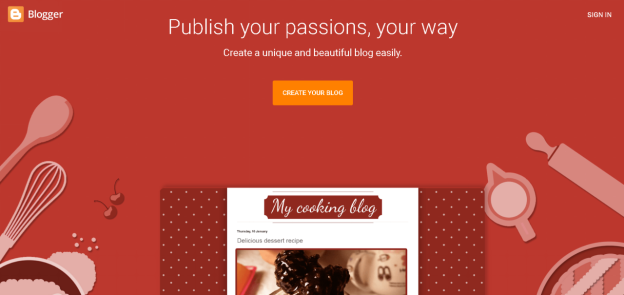
Owned by Google, Blogger is similar to WordPress in that it offers a free blogging platform with a subdomain.
How to Create a Free Blog on Blogger?
Creating a blog on Blogger is cost-free and straightforward. Simply log in with your Google account and wait a brief moment for the setup to complete. After that, your blog will be ready for publishing online.
Blogger also offers a premium plan that allows access to personalized designs. This feature is particularly appealing to bloggers who write as a hobby or enjoy sharing their personal experiences.
Tumblr

Tumblr is a well-known platform that specializes in microblogging, allowing bloggers to share concise posts.
How to Create a Free Blog on Tumblr?
Tumblr is an ideal choice for those new to blogging and interested in shorter content formats. It’s particularly suited for:
- Share a brief video
- Make GIF pictures
- Make picture posts
Like WordPress and Blogger, Tumblr offers a free blogging service. Users receive a web address ending in “.tumblr.com,” which can be personalized. However, unlike WordPress and Blogger, Tumblr typically requires purchasing the most customization options for altering your blog’s appearance.
Medium

Medium is a renowned blogging platform ideal for individuals eager to share their views on specific topics and reach a broad audience.
How to Create a Free Blog on Medium?
To post on Medium, one needs to create a profile, typically in the format of medium.com/@username. This profile allows users to publish various types of content. Medium’s unique feature is that it enables readers to show their appreciation for posts by liking and recommending them to others.
This functionality can lead to rapid content dissemination and popularity. However, it’s important to note that the design of the Medium platform is fixed and cannot be customized. For a personalized profile linked to your content, there is a paid option available. Medium is especially suitable for:
- Individuals aiming to make a significant impact in the blogging world.
- Corporate bloggers seeking a distinct blogging platform in addition to their company’s main website.
Drupal
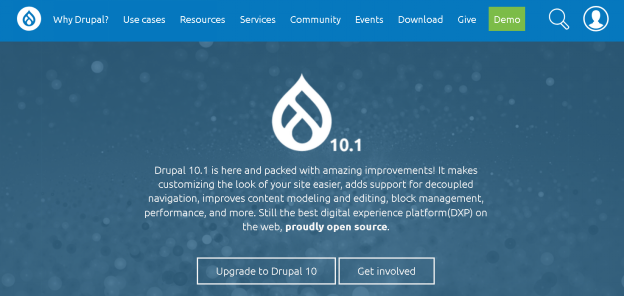
Drupal is an open-source content management system bearing similarities to WordPress. To start using Drupal, users simply need to download and install it from the internet.
How to Create a Free Blog on Drupal?
While Drupal shares some similarities with WordPress, there are key differences to note:
- Hosting and Domain Services: Unlike WordPress, Drupal does not offer hosting or domain name services. Bloggers must purchase these services separately.
- User-Friendliness: Drupal can be challenging for beginners due to its complexity. It requires prior experience or familiarity with content management systems.
Drupal is best suited for bloggers who possess extensive knowledge and experience in web development, are well-acquainted with the platform, and understand its functionalities in depth.
Joomla

Joomla is a robust and advanced content management system, offering more sophisticated features than many other blogging platforms. It is an excellent choice for bloggers seeking a flexible and powerful platform for their ideas.
How to Create a Free Blog on Joomla?
While Joomla is versatile and capable, it comes with its own set of challenges and complexities. Mastery of Joomla requires practice and technical know-how. Additionally, the platform offers limited initial support and can be costly.
Joomla provides a few free features initially, but after a month, users are required to start paying for continued service. To fully activate a blog on Joomla, you need to purchase both a domain name and hosting services. Joomla is best suited for tech-savvy bloggers or those with established businesses looking to enhance their company’s online presence.
Weebly
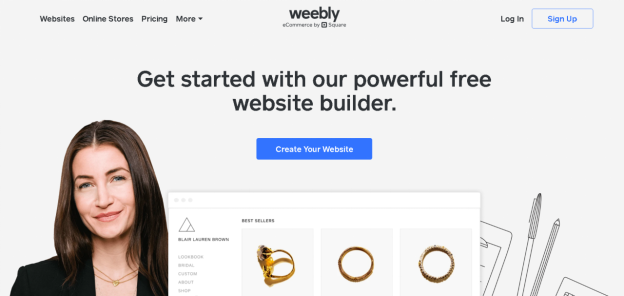
Weebly offers a user-friendly platform suitable for both blogging and building a business website. Renowned for its ease of use, it’s a popular choice for many users.
How to Create a Free Blog on Weebly?
Weebly features a range of intuitive web design tools that allow for easy drag-and-drop placement on web pages. The platform offers various customizable styles to suit the preferences of individual bloggers.
While Weebly allows users to start a blog for free, this is only for a limited period. Subsequently, a purchase is required to continue blogging. Weebly is particularly well-suited for hobby bloggers who enjoy sharing their experiences in their free time.
Magento

Magento is a widely used platform favored by many for managing online stores and creating blogs.
How to Create a Free Blog on Magento?
Utilizing Magento for blogging requires some technical proficiency, particularly in programming. While there is a learning curve, it is not insurmountably difficult. Magento is ideal for those with ambitious visions and near-term goals. It is particularly recommended for:
- eCommerce-focused Bloggers: Ideal for those looking to integrate blogging with online retail promotion.
- Tech-savvy Developers: Suited for developers who are well-versed in the latest technologies and trends.
Tips for Creating a Good Blog
Crafting a successful blog involves more than just writing and publishing posts. It requires strategic planning, engaging content creation, effective promotion, and ongoing management. Here are some tips to help you establish a thriving blog:
Define Your Niche
Be clear about your blog’s focus and intended audience. Choose a subject you’re passionate about or have extensive knowledge in.
Understand Your Target Audience
Conduct surveys to understand your readers’ preferences, needs, and interests. Tailor your content to address their specific problems, queries, and aspirations.
Create Brand Consistency
Develop a unique brand identity for your blog. This includes designing a logo, selecting a color scheme, and using design elements that align with your blog’s theme and appeal to your target audience.
Select the Best Blogging Platform
Opt for a user-friendly blogging platform like WordPress, Blogger, or Wix, ensuring it caters to your customization requirements.
Perform SEO Optimization
Identify and incorporate relevant keywords related to your topic naturally in your content. Optimize your titles, descriptions, headings, and image alt texts for search engines.
Create High-Quality Content
Produce well-researched, informative, and engaging content that resonates with your readers. Enhance your posts with visuals, charts, or videos to make them more captivating.
Interact With Your Audience
Encourage engagement by posing questions and promptly responding to comments. Utilize social media to connect with your audience and share your blog content.
Stick to a Regular Posting Routine
Maintain your audience’s interest and encourage repeat visits by adhering to a consistent posting schedule. Prioritize quality over quantity in your content creation.
Do Email Marketing
Incorporate email capture forms on your blog to collect visitors’ email addresses. Regularly send newsletters with updates, promotions, or exclusive content to keep in touch with your audience.
Promote Your Blog
Leverage social media, guest post on other blogs, collaborate with influencers, and explore various strategies to increase your blog’s visibility. Engage with online communities and forums to network with fellow bloggers and share your work.
Monitor Your Performance
Utilize analytics tools to assess your blog’s performance. These tools provide insights into visitor numbers, engagement levels, and conversions. Use this data to make informed decisions and refine your content strategy.
Make Your Blog Mobile-Friendly
Optimize your blog for mobile devices, ensuring it’s easily accessible on smartphones and tablets.
Be Legally Compliant
Adhere to legal regulations, including copyright laws, privacy policies, and terms of use.
Learn and Adapt
Stay informed about the latest blogging trends, tools, and best practices. Be open to feedback and adjust your strategies based on what resonates with your audience.
Building a successful blog requires dedication, effort, and a commitment to continuous learning and adaptation. By focusing on providing value to your audience, you increase your chances of establishing a successful and influential blog.
How Much Is the Cost of Creating a Premium Blog?
The cost of creating a blog varies based on your goals, preferences, and the level of professionalism and customization you desire. Here are the potential expenses to consider when setting up a blog:
Domain Name
Your blog’s web address. Domain names typically range from $10 to $20 per year. However, prices can be higher for popular or in-demand domains.
Web Hosting
It is essential for storing your blog’s files and making them accessible online. Hosting costs vary based on the provider, plan type, and included features. Shared hosting, suitable for beginners, ranges from $3 to $10 per month. As your blog grows, you might consider more advanced hosting options like VPS or dedicated hosting, which can range from $20 to several hundred dollars per month.
Content Management System
Popular CMS platforms such as WordPress, Joomla, and Drupal are available for free. However, investing in premium themes (ranging from $20 to $100+) and plugins/extensions (varying in price) might be necessary for enhanced aesthetics and functionality.
Design and Themes
While many Content Management System (CMS) platforms offer free themes, opting for a premium theme can lend your blog a unique and professional look. Theme prices vary, ranging from around $20 for basic ones to $200 or more for feature-rich, customizable options.
Plugins and Extensions
These additional features enhance your blog’s functionality. Some are available for free, while others can cost anywhere from $10 to over $100 annually.
Customizations
Depending on your blog’s specific needs, you might incur costs for online shopping features, exclusive membership areas, discussion boards, or custom coding. The prices vary widely based on the complexity and customization level required.
Graphic Design
For unique images or logos, you may need to hire a designer or purchase ready-made graphics. The cost is contingent on the complexity of the designs and their sources.
Marketing and Promotion
To increase your blog’s visibility, you might invest in social media advertising, email marketing, SEO tools, and other promotional strategies. These marketing costs are separate from the initial blog setup costs.
It’s important to note that starting a blog can be quite cost-effective, especially if you utilize free hosting and theme options. As your blog grows and your goals evolve, you might consider investing in additional features and services to enhance its appearance and functionality. Determining your blog’s budget requires careful consideration of your needs, available resources, and long-term objectives.
Final Thoughts
Creating a free blog and monetizing it can be a rewarding journey, albeit challenging. This guide outlines key steps to get started, but achieving success in blogging requires time and dedication.
The initial steps include choosing the right platform, identifying your niche, and building a follower base. To monetize your blog, consistently produce quality content, promote it effectively, and engage with your audience.
Monetization strategies like affiliate marketing, sponsored posts, and selling digital products offer viable income opportunities. However, it’s the relationship you build with your audience and the value your content provides that will ultimately drive your success.
FAQs
Can you really make a blog for free and earn money from it?
Absolutely. You can initiate a blog for free using platforms like WordPress.com, which does not charge any initial fees. Monetization can be achieved through methods such as affiliate marketing and sponsored content.
How can I pick a good niche for my blog?
To select a lucrative niche, merge your interests with topics that have a high audience demand. Research trending topics in the blogging community, assess your expertise in these areas and consider your target audience.
How can you make money from a free blog?
Earning revenue from free blogs can be accomplished through partnerships with companies for product promotions, displaying advertisements, and selling digital products like e-books or online courses relevant to your content and audience.
Are there any special suggestions for making a successful blog that earns money?
For a profitable blog, focus on regular, high-quality content creation, engage with your audience, track performance metrics, and consider building an email list for enhanced communication and promotional efforts. Reinvesting earnings can also contribute to the blog’s growth.


